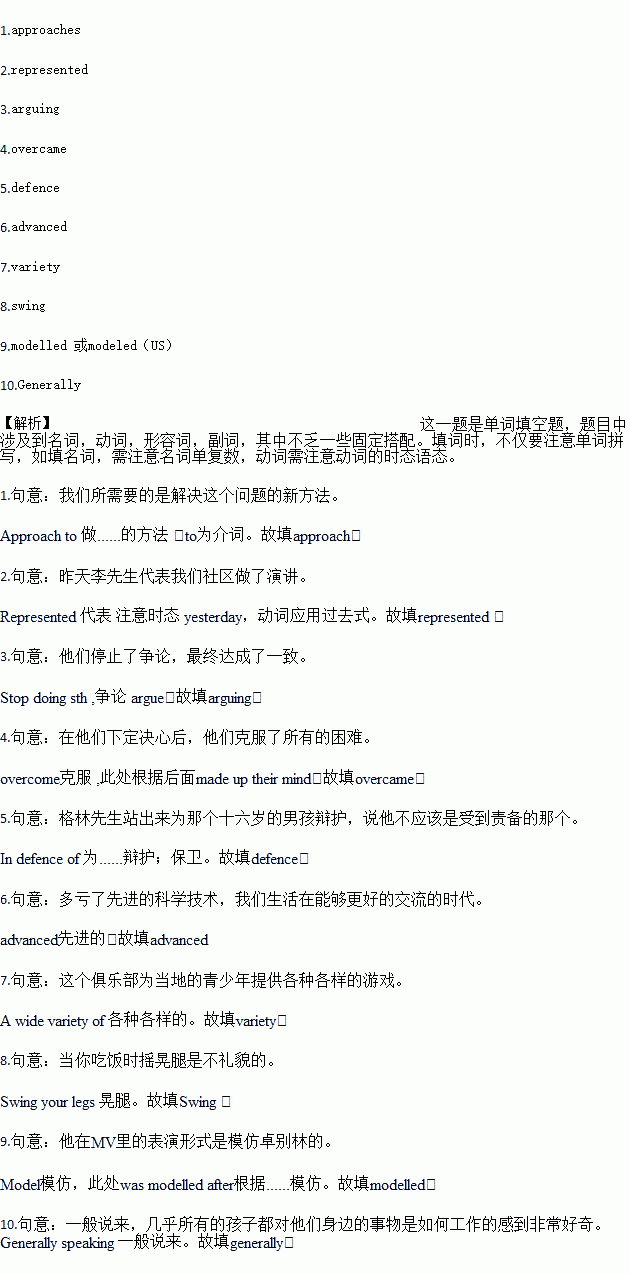题目内容
1.What we need are new __________ (方法) to solving the problem.
2.Mr. Li __________(代表)our community to deliver a speech yesterday.
3.They stopped ____________(争论)and managed to reach an agreement.
4.They __________(克服,战胜)all kinds of difficulties after they made up their mind.
5.Mr. Green stood up in __________(保卫)of the 16-year old boy,saying that he was not the one to blame.
6.Thanks to the a__________ technology, we live in an age of bettered communication.
7.The club offers a wide v__________ of games to the local teenagers.
8.It is bad manners to s__________ your legs while eating.
9.His acting style in the MV was m__________ after Charlie Chaplin.
10.G__________ speaking, almost all the kids are curious about how everything around them works.
 天天向上一本好卷系列答案
天天向上一本好卷系列答案 小学生10分钟应用题系列答案
小学生10分钟应用题系列答案
